Russia’s war against Ukraine is a continuation of Moscow’s centuries-long goal to obliterate Ukrainian culture and statehood. Over the past three decades, however, the United States has, through missteps and inaction, emboldened Russia’s aggression by failing to confront the looming threat — a failure which, under the administration of U.S. President Donald Trump, could lead to a disastrous aftermath for Ukraine.
This argument lies at the core of retired U.S. Army Lieutenant Colonel Alexander Vindman’s latest book, “The Folly of Realism: How the West Deceived Itself About Russia and Betrayed Ukraine.” Vindman served as the director of European affairs for the U.S. National Security Council during Trump’s first presidency. In his new book, he critically examines the flaws of a foreign policy that prioritizes short-term strategic interests over global cooperation and a moral foundation in politics, contending that the West’s reliance on transactional geopolitics has undermined its credibility and emboldened authoritarian regimes.
In an interview with the Kyiv Independent, Vindman shared his thoughts on the stalled progress of a U.S.-brokered peace deal between Ukraine and Russia, why the U.S. continues to view Ukraine through a Russian lens, how Russian President Vladimir Putin manipulates Trump, and why Vindman thinks a neo-idealist approach can triumph over realist geopolitics in our lifetime.
This interview has been edited for length and clarity.
The Kyiv Independent: During the presidential election, Trump claimed that he could put an end to the war between Ukraine and Russia immediately upon coming into office. And now we have (U.S.) Secretary of State Marco Rubio saying that achieving peace will take time. What do you think of the latest events in the ongoing peace process?
Alexander Vindman: There's a saying that we started using with regard to Trump: “You have a concept of a plan. You don't have a(n actual) plan.”
There was always an illusion that a quick peace was possible. It was merely rhetoric for populist consumption — the idea that Putin would grant peace before Trump’s inauguration or soon after. In reality, negotiating peace is not in Russia’s interest. Russia seeks to subordinate all of Ukraine, and until it is proven that they cannot achieve that — meaning there must be more robust support for Ukraine to counter those aspirations — there is little hope of convincing Russia to agree to any kind of peace settlement.
On the other hand, Ukraine is desperate for peace in some respects, but not at the cost of its sovereignty, territorial integrity, or national unity.
There is currently no real prospect for lasting peace, and the approach Trump is taking is the worst possible one. By granting significant concessions to Putin early on, he allows Russia to bank those gains while continuing to advance its objectives at no cost. This only delays any real chance for peace.
Rubio seems to understand this, but the key question is when the broader realization will come. It will likely take time — ultimately, Putin will have to convince Trump himself that peace is not possible. Only when it becomes undeniable that Putin is acting in bad faith and has no intention of delivering on peace might the U.S. change its approach — but it’s going to be some time before we get there.
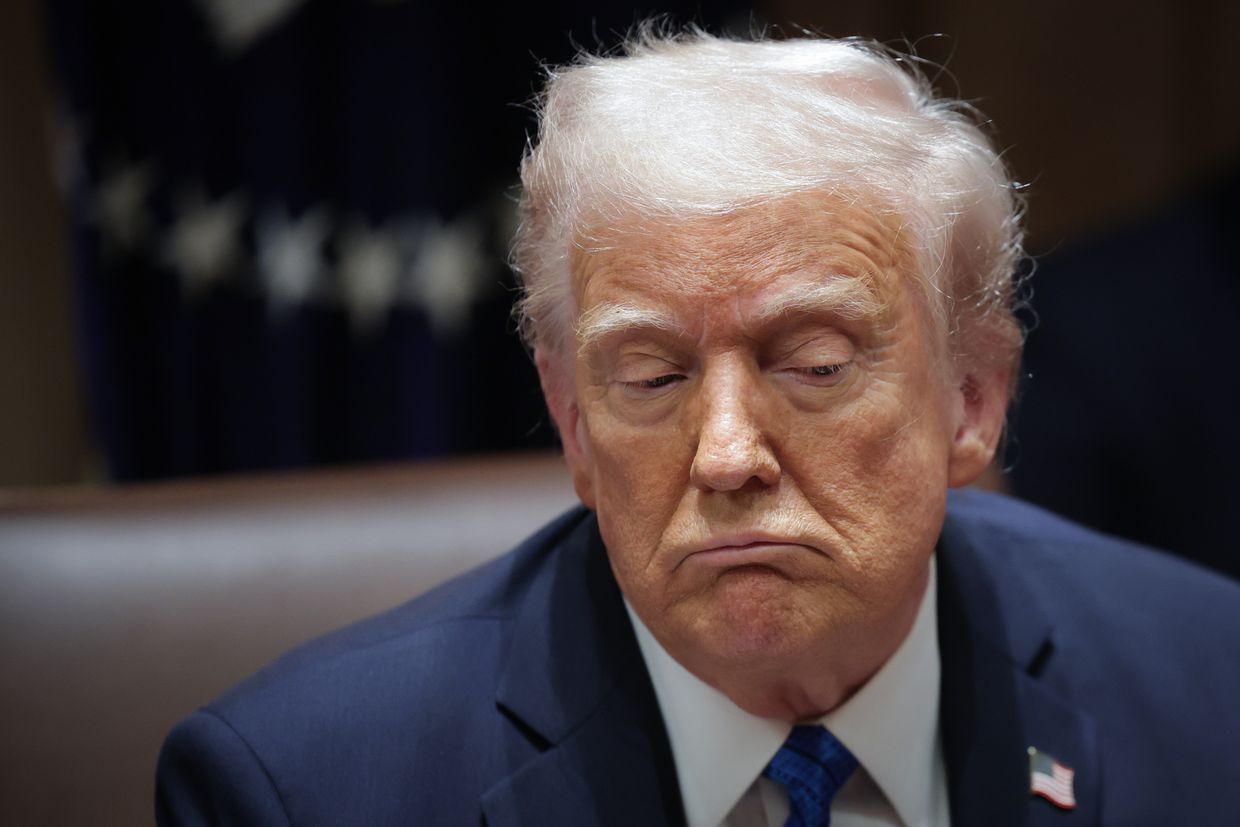
The Kyiv Independent: Why do you think the Trump administration is so eager to appease Russia?
Alexander Vindman: It’s some theater of the absurd. Rubio understands that tough language and strong actions are necessary, but he also knows that Trump has a deep, long-standing desire to be friendly with Putin. This pattern has been evident for years.
In some ways, this approach will have to run its course. Russia will need to repeatedly prove itself as an unyielding bad actor — demonstrating, yet again, that it cannot and will not deliver on peace.
Yes, of course, Russia sounds very friendly and accommodating — because they understand that the easiest way to get something out of Trump is to flatter him. The Ukrainians can also be accommodating in certain regards, using polite language and expressing gratitude. However, where they refuse to compromise is on their sovereignty, territorial integrity, and the need for guarantees. They have the clearest understanding of Russia’s repeated violations of agreements, whereas Trump’s perception of Russia remains deluded.
"Trump’s perception of Russia remains deluded."
So now there’s pressure on the EU, but it’s unlikely to yield significant results. Over the past 70 days — a very brief period in the Trump administration — the U.S. has proven to be a bad actor, friendly to adversaries while being adversarial to allies. It has pressured friendly economies, broken with common threat perceptions, and abandoned shared democratic values and interests.
Because of this, I don’t think the pressure on the EU will work. Instead, we’ll likely see more manipulation of Trump — things that sound good on the surface but ultimately lead nowhere. This will be especially true with Russia. I also think the Ukrainians may adopt some of that same diplomatic, nice-sounding language.
Sure, people are happy to say they'll do something, but there’s no real follow-through — Europeans included. This is the unfortunate reality of dealing with Trump: it’s not about substance, but rhetoric. What matters is what sounds good — political announcements rather than concrete action. That’s the transactional nature of Trump.
I hope the Ukrainian leadership recognizes that there’s little they can do to win his favor or change his stance toward Russia. Unfortunately, Ukraine will have to stand firm, and there’s a strong chance that U.S. support could be suspended for an even longer period. The real urgency lies with Europe stepping up in a bigger way to fill some of those gaps. But they can’t replace U.S. support entirely, America’s absence just leaves too large a vacuum.
Join our community
Support independent journalism in Ukraine. Join us in this fight.
Support us
The Kyiv Independent: Amid all this we have seen some worrying comments from U.S. officials, most notably, Steve Witkoff telling Tucker Carlson that the Russian-occupied regions of Ukraine are Russian-speaking and therefore somehow want to be part of Russia, ignoring the fact that annexation occurs at gunpoint.
We can even say this misunderstanding of Ukraine happened before the Trump administration. Former U.S. President George H.W. Bush was warned by Soviet officials about so-called dangerous nationalists in Ukraine who wanted independence. Former U.S. President Barack Obama wanted to have a “restart” with Russia, and under his term we had the illegal annexation of Crimea and the start of the invasion of Donetsk and Luhansk oblasts. So why do you think the U.S. continuously looks at Ukraine from a Russian perspective?
Alexander Vindman: This is the central theme of my latest book, “The Folly of Realism: How the West Deceived Itself About Russia and Betrayed Ukraine.” The title should have been in the present tense because this isn’t just a past mistake, though — it’s an ongoing pattern.
For 35 years, across six U.S. administrations — dealing with (former Russian President Boris) Yeltsin, Putin, and various Ukrainian presidents — the U.S. has consistently overestimated its ability to achieve more with Russia than is realistically possible. Russia has its own worldview and interests. It seeks to be the regional hegemon, maintaining a privileged sphere of influence over its former empire, now independent states. For decades, it has used influence, coercion, and hybrid warfare — ranging from election interference to outright military aggression — to achieve this goal.
This approach is fundamentally at odds with U.S. values and interests, at least historically — though that may not seem to be the case under Trump. The U.S. leadership has repeatedly succumbed to both hope and fear: hope that Russia could be engaged more constructively, and fear that holding Russia accountable — by condemning its actions or placing conditions on engagement — would only worsen relations.
Because this cycle has played out repeatedly, Putin, who has been in power for 25 years, has grown increasingly emboldened. He has escalated from political manipulation to outright military aggression. In many ways, the West contributed to this by fostering a sense of impunity, allowing Putin to push boundaries without consequences.
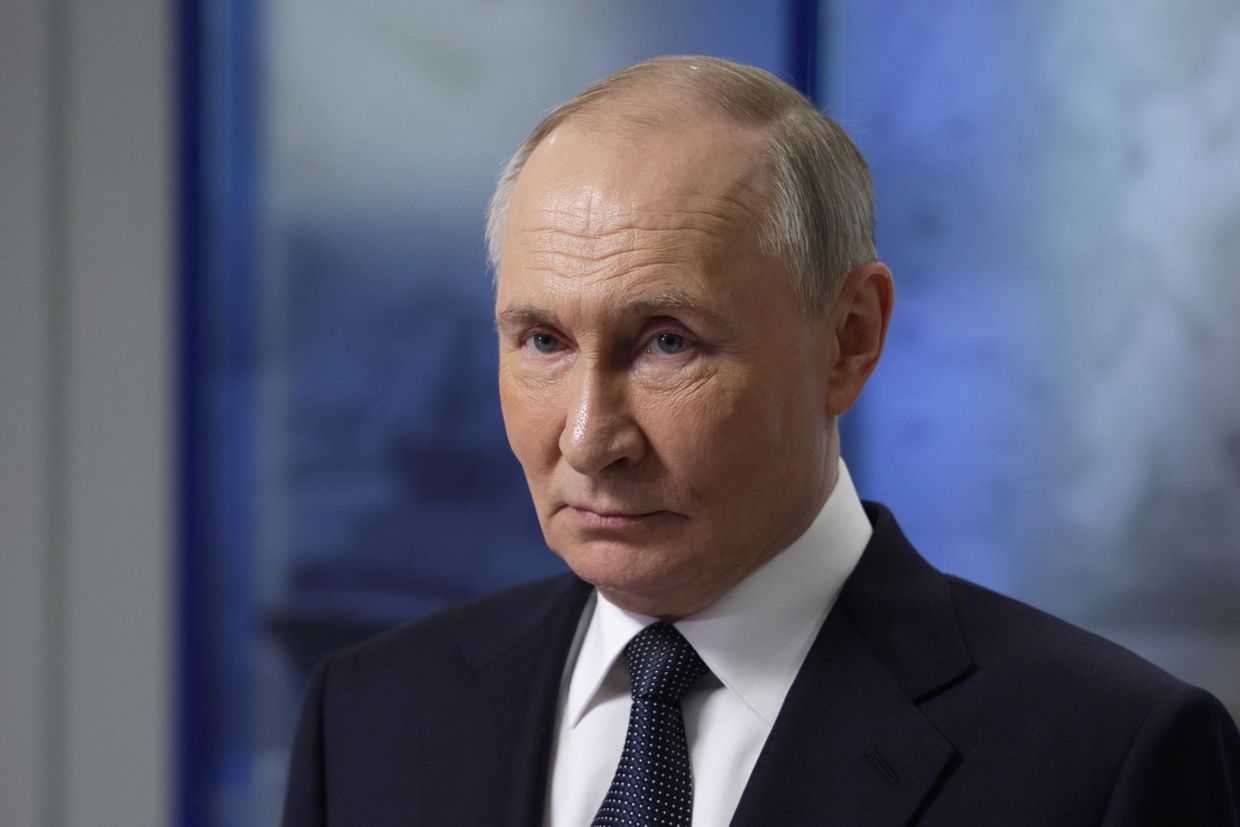
We also missed countless opportunities to support Ukraine, especially after the Orange Revolution, when Ukraine made a decisive shift toward the West, breaking from its historically Russian-leaning orientation. We could have invested in Ukraine — financially, through strategic partnerships to aid its transformation, and militarily to strengthen its defenses against Russian aggression.
If we failed to act in 2004, there was even less excuse by 2008, after the Russia-Georgia war. And by 2014, when Russia first invaded Ukraine, our restraint was entirely indefensible. We have repeated the same mistakes time and again, and now, under Trump, we’re seeing history repeat itself — only in an even more extreme and exaggerated form. It may look different, but it follows the same pattern: falling for Russian propaganda and buying into the myth of Russian exceptionalism.
Witkoff, in particular, embraces this narrative wholesale — almost like a child parroting what he’s been told. And I believe there are two reasons for this. First, he simply doesn’t care about Ukraine. That much should be clear. The Trump administration also couldn’t care less about Ukraine. They would gladly sacrifice Ukraine for nothing if they believed it would help normalize relations with Russia. That’s not just malice — it’s maximum malice. But it’s also maximum ignorance, because they fail to grasp that this approach won’t end the war.
The entirely transactional strategy the U.S. has maintained toward Russia has been counterproductive, making the situation far worse. Instead of fostering better relations, it has led to an even more deteriorated bilateral dynamic. Had we upheld our principles and consistently supported Ukraine at key moments over the past 35 years, we wouldn’t be in this position today.
The Kyiv Independent: In your book, you advocate for an alternative ideology to realism called neo-idealism. For those in our audience who haven’t had the chance to read your book, could you briefly go into what that is? Also, how realistically do you see a country like the U.S. adopting a neo-idealist approach in our lifetime?
Alexander Vindman: Very realistic. So, let me start there: we will all (go into this thinking that we will) live long and prosperous lives, which makes it easier to make such predictions.
The book, in fact, fundamentally rejects realism, which fosters a hyper-transactional approach. When countries pursue their national interests maximally, everything becomes about immediate deals. This is where someone like Trump becomes the ultimate embodiment of the folly of realism.
Looking back at multiple points in history — whether it’s Ukraine’s independence, where the U.S. tried to suppress it with the infamous “Chicken Kyiv” speech; the denuclearization efforts under (Former U.S. President Bill) Clinton; the missed opportunity after the Orange Revolution; or the failure to constrain Russian aggression during the Georgia War and the war that started in 2014 — it’s clear that realism has consistently failed.
Given that, we need to start looking for alternatives. We don’t want to keep repeating these failures. My proposal is a return to core values in U.S. foreign policy — specifically, recognizing that values and interests are indivisible. In democracies, values should be central to our understanding of national interest.
Does that mean we always sacrifice our interests for values? No, that’s highly impractical. There are too many countries that are realists or transactional, and they control things the U.S. needs — like oil in Saudi Arabia. Sometimes, we have to be practical when dealing with adversaries, like negotiating strategic arms control agreements. These can be a net positive for the global community, and we’ve successfully managed to separate that approach from the broader deterioration of U.S.-Russia relations.
However, what we shouldn’t do is constantly and consistently sacrifice our values for our interests. If we do, we become overly transactional and repeat the mistakes of the past.
So, my solution is practical: we need to rebalance. We should shift away from a hyper-transactional approach and place values at the forefront. This course correction is necessary to prevent further damage to U.S. foreign policy.
We’re making all sorts of mistakes and damaging important relationships. We need to rebalance, which means putting values first. From there, we can begin to focus on what truly matters. The most critical partners for us are our fellow democracies — they are the source of both security and stability. Europe, in particular, has been one of the most vital security arrangements we’ve had.
Our fellow democracies, not empty promises from Putin to (Former U.S. President) George (W.) Bush about fighting the global war on terror, have stood by us when we’ve been under pressure — just as they did after 9/11. This isn’t about superficial pledges; it’s about the legitimate support we received from our democratic allies, even as we fought some misguided wars in the Middle East for 20 years.
They were there for us, and it’s not just about security — it’s about prosperity and focusing on democracies. It’s about strengthening and hardening our fellow democracies, many of which are under pressure and being attacked by aggressive regimes, especially through election interference. It’s about supporting struggling democracies, including neighbors like Hungary and Slovakia, which are facing a shift away from democracy. It’s about nurturing democratic institutions around the world as they come under increasing attack from authoritarian regimes.
That’s the core idea. It’s not just theory — it’s a very practical rebalancing. And I believe we have practitioners of this approach. Ukraine is often seen as an exemplar of neo-idealism, defending the democratic world against authoritarianism with its own blood and some Western support. But there are other examples in eastern and northern Europe, as well as pockets of neo-idealism in the U.S.
The reason I’m confident we’ll get there is that we’re going to face so many challenges to our institutions over the next four years that a correction will be inevitable.
Many people will be left behind. Too many will be the losers in this Trump-driven approach that enriches the wealthy at the expense of working people. That correction will give us an opportunity to focus on a values-based approach.
I foresee significant challenges for Ukraine in the next six months. I believe the U.S. will scale back its support, and the Europeans may be too slow to increase theirs. But Ukraine is not where it was three years ago — it now has an industrial base that can withstand some of these challenges. Russia, too, is under immense pressure. So, I view this more pragmatically: this is where we’ll end up, from a survival perspective.
Note from the author:
Hey there, it's Kate Tsurkan, thanks for reading my latest interview. It was a real pleasure for me to speak to Alexander Vindman about the themes relating to his latest book, not only because he's very wise, but also because he remains a great example of the embodiment of American values that my home country used to be known for. If you like reading this sort of thing, please consider becoming a member of the Kyiv Independent.
What Russia really wants from the Black Sea ceasefire deal
With much fanfare, the U.S. on March 25 announced it had brokered an agreement between Russia and Ukraine to “eliminate the use of force” in the Black Sea after two days of talks in Saudi Arabia. But while Kyiv said it was ready to abide by it straight away,

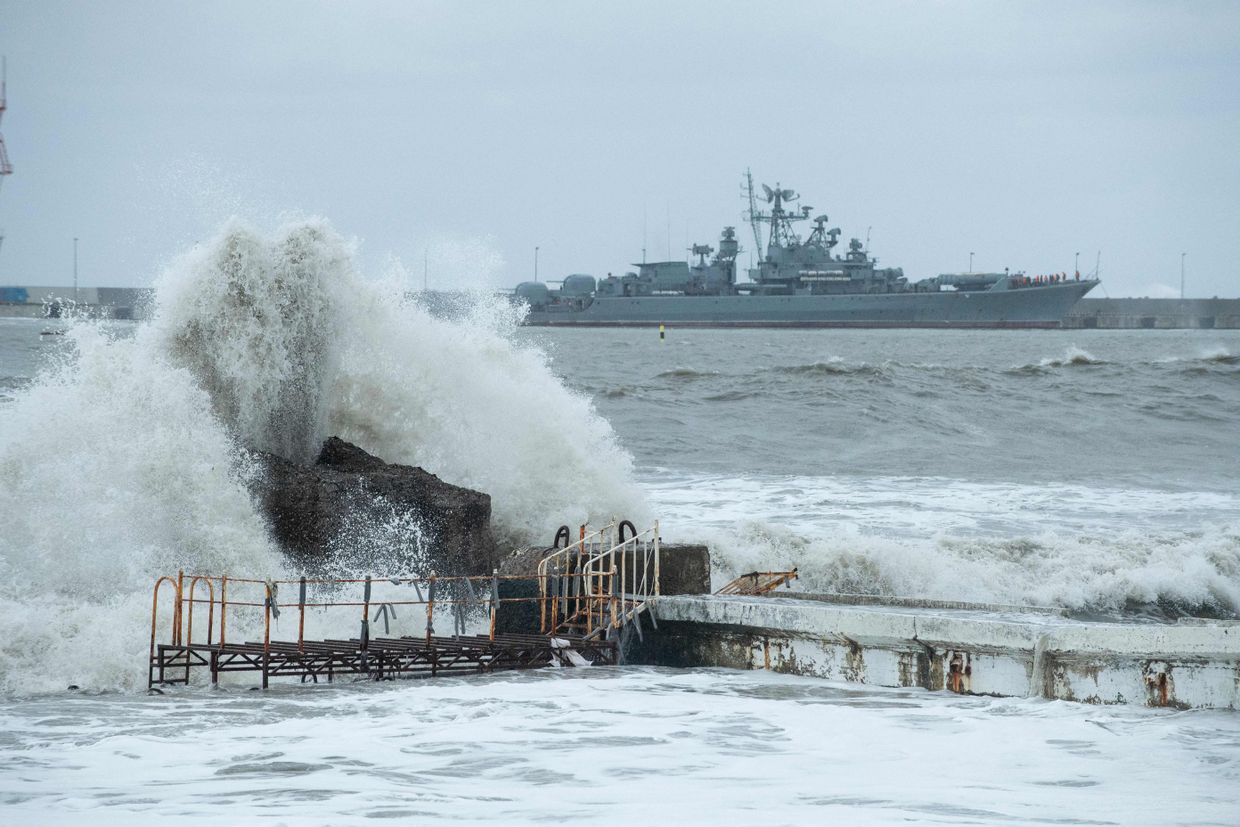
.png)
 German (DE)
German (DE)  English (US)
English (US)  Spanish (ES)
Spanish (ES)  French (FR)
French (FR)  Hindi (IN)
Hindi (IN)  Italian (IT)
Italian (IT)  Russian (RU)
Russian (RU)  1 day ago
2
1 day ago
2
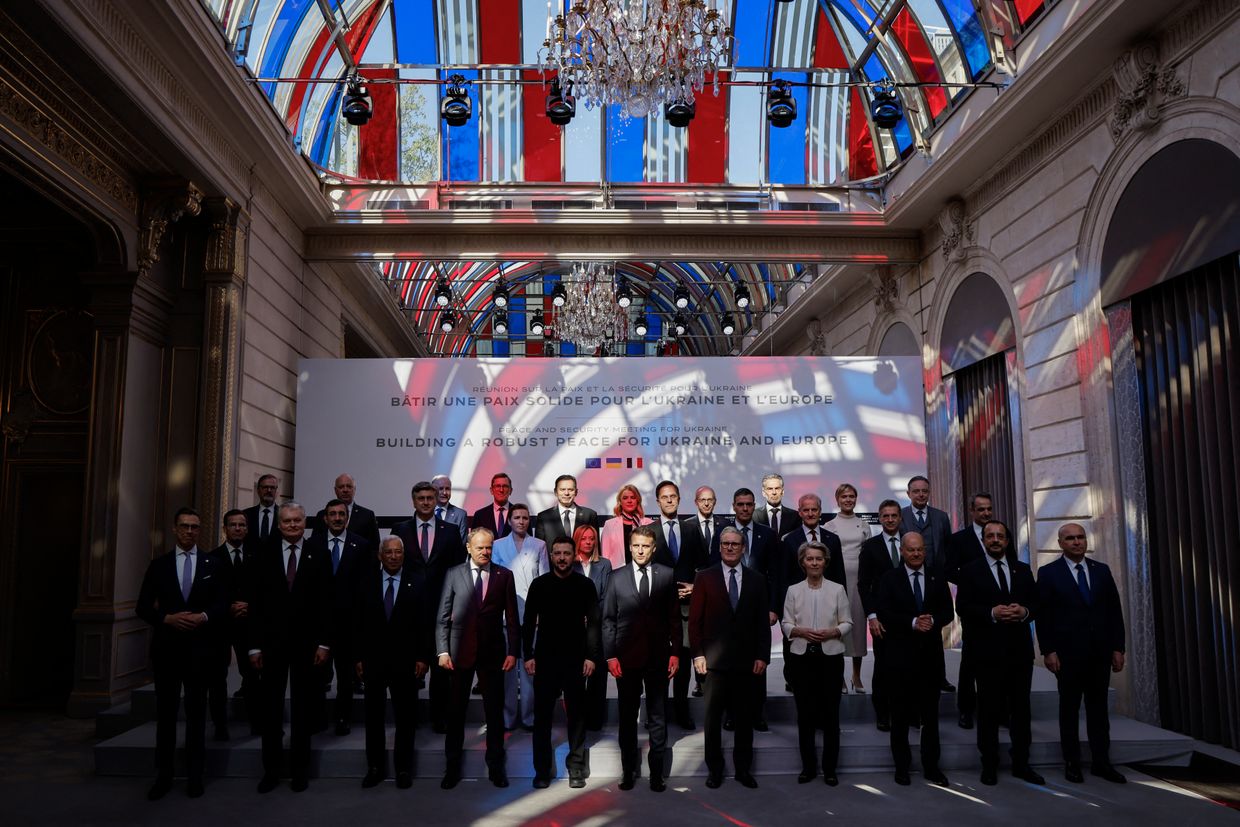





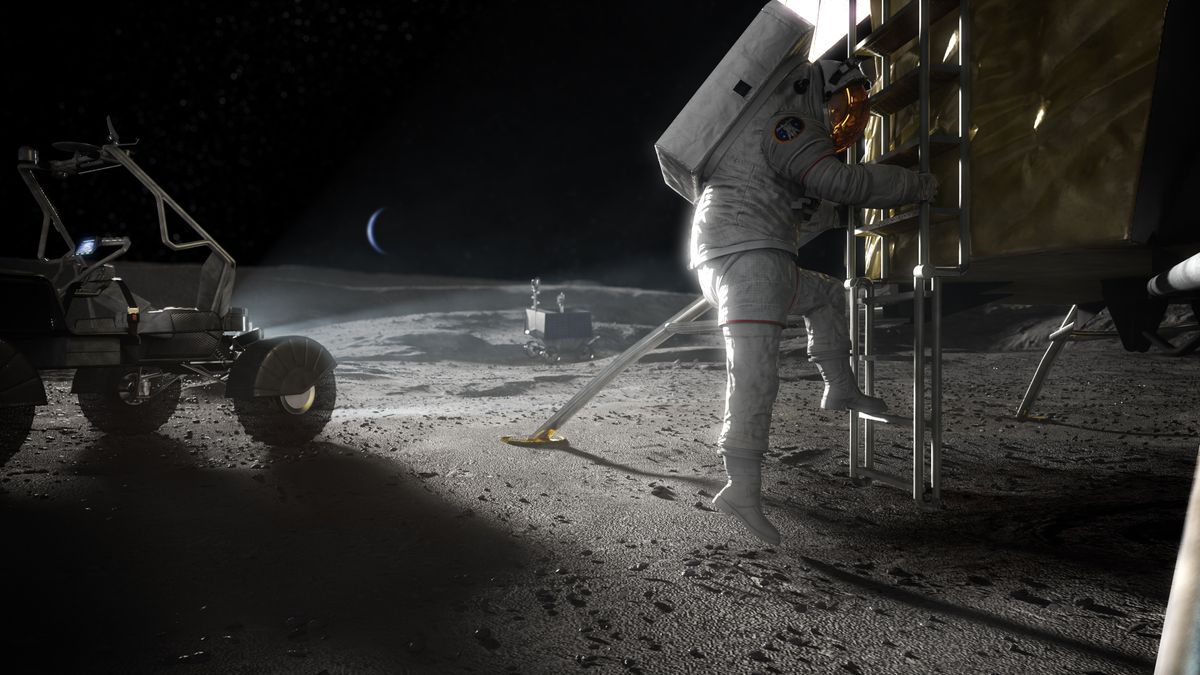


Comments